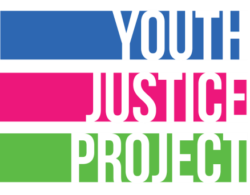The unique challenges vulnerable young people face as they transition to adulthood are complex and intersecting. Advocates working with youth and policymakers alike must take into account the specific developmental hallmarks of adolescence, as well as the lack of supportive structures and services available to youth, to develop a more tailored and holistic approach.
New methods for working with youth should take into account the unique challenges they face. Advocates, agency staff, and decision makers should undergo implicit bias training as a first step towards addressing the severe racial and ethnic inequities that youth face. Advocates and service providers should connect with youth in their communities to increase access to and utilization of services. Additional data should be gathered to ensure that new policies and practices are grounded in evidence. Finally, increased coordination among systems including child welfare, juvenile justice, education, and legal services will help insure that fewer youth fall through the cracks.
Additionally, as civil legal aid practitioners working on the ground with youth in Philadelphia, we have identified issue-specific recommendations that grow out of our practice-area expertise.
Policy Recommendations
Increasing Access to Employment Opportunities
- Create a subsidized jobs program to connect marginalized youth, including youth with records and youth with disabilities, to employment opportunities.
- Helping youth gain initial work experience and references will improve their long-term employment prospects.
- Make work supports available, especially to young parents, including child care and transportation assistance.
- Work supports ensure that youth are able to remain in the workforce and are viewed as reliable employees.
- Invest in programs that reconnect youth who have dropped out of school with meaningful education and vocational training opportunities.
- Limit prosecutions of youth for normal adolescent behavior and tailor more age-appropriate responses to criminal activity.
- Reduce arrest rates and develop more diversionary programs to allow youth to receive supports and services rather than become system-involved.
- Raise the age for prosecution in adult court to 21 and end the practice of charging and housing juveniles in the adult criminal justice system.
- When youth are arrested and prosecuted, protect records from public view to reduce barriers to employment.
- Keep juvenile record information confidential and automatically expunge/seal juvenile records when youth leave court supervision.
- Enact a broad expungement/sealing policy that allows young people who have adult convictions to move beyond their youthful indiscretions.
Promoting Health & Well-Being through Greater Access to Public Benefits
- For youth receiving special education services in high school, include discussions about eligibility for public benefits in transition planning so that youth know how to apply for benefits and understand how working, vocational rehabilitation, and other decisions may affect public benefits.
- Systematize transition planning for youth leaving foster care and juvenile delinquency placements to include applying for public benefits, including SSI, and other necessary supports well in advance of discharge to minimize gaps in services and supports.
- Ensure that Pennsylvania proactively seeks out and enrolls youth under age 26 who have left foster care in Medicaid as contemplated by the Affordable Care Act.
- Create a separate disability standard for young adult SSI claimants that incorporates findings about ongoing brain development.
- Repeal policies that limit access to SNAP benefits (food stamps) for able-bodied adults without children, many of whom are young adults, allowing anyone who meets income requirements to access these vital benefits.
- Increase state funding for vocational rehabilitation services to draw down the maximum amount of federal funding and help more youth with disabilities access job training and supports to find employment.
Ensuring Family Safety and Stability
- Improve access to social supports that can prevent young parents from losing custody of children, including priority access to housing and other benefits programs.
- Prioritize emergency shelter and social services for both families and unaccompanied youth who are experiencing homelessness.
- Increase the availability of mother/baby placements for teens with drug problems or who otherwise need placement (delinquency, shelter, foster home, etc.). Keeping infants and toddlers with their teen mothers is best for child development when there is no safety issue preventing joint placement.
- If teen parents need to be separated from their children, diligently search for kinship resources and consider any kinship placement an emergency placement.
- Provide teen parents with vital income supports while they take steps to reunite with their families.
- Ensure high quality prevention services for families with teens to allow older youth to stay safely at home whenever possible.
- Provide specialized training to social workers about teen parents’ legal rights and responsibilities to care for and have custody of their children, even if the parents are minors or in foster care themselves.
- Increase financial resources to Family Court in order to ameliorate the backlog of cases that leaves families waiting months for relief and creates unnecessary delays to permanency.
While some of these recommendations carry a cost, it is far less than the cost of failing to act. It costs approximately $40,000 per year to care for an individual person experiencing incarceration or homelessness. By providing youth with greater stability and opportunity, we invest not just in them but in the future of our cities and country.
Youth advocates and policy makers must do more to ensure that youth transitioning to adulthood do not fall through the cracks, but rather receive the continued support they need to transition successfully into adulthood and out of poverty.






